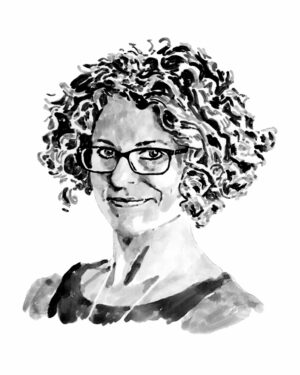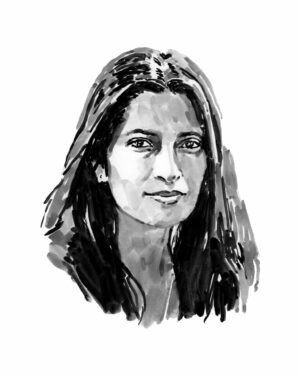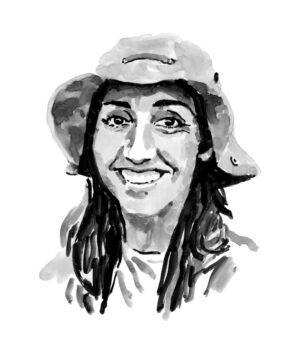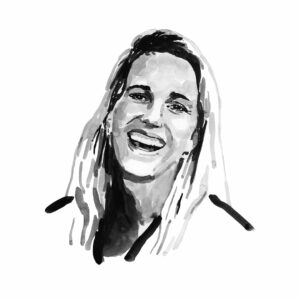Ocean Storytelling Writing Grant
The planet’s oceans need to be a top priority if we are to secure our future. They need to be foremost in our minds – and present in our hearts – if we want to create meaningful change. At the Save Our Seas Foundation (SOSF), we believe that storytellers have a powerful and unique role to play in making this happen. While we have a strong history of supporting marine conservation and education projects, it is compelling stories that enable the message behind the scientific facts and figures to take root in people’s hearts. And it is by stirring emotions in us that stories can foment ideas and action, which is key to inspiring us all to play our part in creating a better world.
We are delighted to introduce our Ocean Storytelling Writing Grant as the latest development in our continued drive to support a new generation of ocean storytellers who can convey conservation crises with precision and empathy and kindle the kind of wonder that nudges us all closer to the sea.
‘If there is poetry in my book about the sea, it is not because I deliberately put it there, but because no one could write truthfully about the sea and leave out the poetry.’
– Rachel Carson
The Writing Grant represents a new category in our Ocean Storytelling Grants, which include the Photography Grant and are overseen by the vision of the SOSF Director of Storytelling and National Geographic photographer Thomas Peschak. The writing category introduces a suite of new mentors who bring their word-smithing to conservation storytelling. The inaugural year will be run in collaboration with bestselling author and marine biologist Dr Helen Scales and conservation journalist and wildlife filmmaker Swati Thiyagarajan.
A shiver of blue sharks; one of the sharks is injured after accidentally becoming entangled in discarded fishing gear. Photo © Simon Hilbourne
This writing category builds on the legacy of our previous photography grants and is dedicated to supporting a diverse generation of emerging conservation storytellers. While we don’t expect all applicants to be writers with a marine focus, we are specifically looking for writers who can tell conservation stories about the ocean. Whether they describe marine animals themselves, or fisheries, or the communities whose lives are intertwined with the life of the sea, a writer’s words can inform, transport, enchant, endear and persuade.
Successful grantees will receive a paid assignment to cover a conservation story under the direct mentorship of the Storytelling Grant team. We particularly wish to support early career and emerging storytellers and aim to encourage new voices with fresh perspectives and writing approaches, so although applicants must be already committed to writing, they should have no more than five years of professional experience in any writing-related discipline. We encourage women and applicants from underrepresented communities to apply for this opportunity. Applications will be accepted both directly via open call and through nomination.
Find out more about the entry requirements here.
APPLICATION PROCESS
- The Ocean Storytelling Writing Grant application process consists of a one-stage online application. Applicants are required to answer a few questions and submit a short feature-style story (1000 words) and a completed set of short answers (100–200 words each) in the application form.
- Only one application will be accepted from any one applicant.
If an applicant has any other current SOSF grant, they cannot apply for a new grant. - All applications will be reviewed by the Ocean Storytelling Writing Grant judging panel and require final approval from the Foundation’s Board of Directors.
- If successful, the SOSF Grant agreement between the Foundation and the applicant must be sent back by the deadline. This agreement cannot be modified.
PRIZES
- Three winners will be selected for the grant.
- Each winner will receive a US$2,000 cash prize and will be given a paid writing assignment to document an SOSF-supported marine research or conservation project. He or she will take an all-expenses-paid trip to visit that SOSF project anywhere in the world to complete the assignment. The SOSF has funded more than 400 projects in more than 85 countries and each winning writer will be assigned to tell one of these stories.
- The grantees will be mentored by Dr Helen Scales (marine biologist and bestselling author), Swati Thiyagarajan (conservation journalist at the Sea Change Project) and Dr Lauren De Vos (SOSF science writer). Dr James Lea (CEO of the SOSF) and Jade Schultz (SOSF content manager) join the panel as judges.
- All winners will be given the chance to showcase their published marine conservation story assignment.
A curious sperm whale inspects the photographer. Photo © Simon Hilbourne
MEET THE JUDGES
Helen Scales

Helen Scales is a marine biologist, broadcaster and writer. Her journey through the ocean began in her teens, diving in bone-chilling UK seas. She went on to study endangered ocean life around the world, as a research scientist at Cambridge University and with conservation organisations that included Natural England and WWF. A growing passion for storytelling tempted her to start writing and talking about the ocean. She now navigates a freelance career writing articles and books, making podcasts and radio documentaries, public speaking, teaching at Cambridge University and collaborating with artists, photographers and filmmakers – all with the aim of inspiring people to know and care about ocean life.
Helen’s books include the New York Times 2021 top summer read The Brilliant Abyss, the Guardian bestseller Spirals in Time, and titles for young readers that include What a Shell Can Tell and the upcoming ‘Scientists in the Wild’ series. Her recent articles include a piece for National Geographic Magazine about protecting the seas around Antarctica, featuring Thomas Peschak’s photographs, and the Guardian series ‘Discovered in the Deep’. Helen divides her time between Cambridge, UK, and the wild, west coast of France.
Swati Thiyagarajan
An award-winning conservationist, environmental journalist and documentary filmmaker, Swati was born in Chennai, India. Her nature-loving father first guided her into wild places and she spent much of her childhood outdoors with mentors, notably her father’s best friend, ornithologist and photographer Siddarth Butch, who taught her to appreciate the natural world. Such influences helped Swati to decide at an early age that humans were not at the centre of existence and spurred her onto a career path dedicated to raising the profile of other lives on this planet. She is currently a core member of the Sea Change Project team in Cape Town, South Africa, and the environment editor at the Indian television news network NDTV. Her book Born Wild was published in 2017 by Bloomsbury Publishing and details her in-field experiences as a filmmaker and journalist.
Swati has received the Carl Zeiss Award, Earth Heroes Award and two Ramnath Goenka Excellence in Journalism Awards for her conservation storytelling. In addition to her extensive writing career, she has received accolades for her films and television series and was integral to the recent success of Netflix’s My Octopus Teacher. Determined to use her writing to conservation effect, Swati applies her creativity to raising the profile of the Great African Seaforest, a kelp forest at South Africa’s southern Cape Peninsula. She splits her time between Cape Town and New Delhi.

Lauren De Vos

As a marine biologist and the science writer for the Save Our Seas Foundation, Lauren combines her loves of words with her passion for the ocean. But she is, before anything else, a voracious reader. The discovery of words helped her journey into new worlds and different lives. While much inspiration for her career in conservation came from watching documentaries and travelling, it was the well-thumbed pages of her piles of books and National Geographic magazines that transported her whenever she needed it most. Lauren believes that great natural history writing has inspired and challenged, confronted and consoled, informed and transported her: the dog-eared pages of giants like Thoreau, Muir, Berry and Carson sit on her bookshelf alongside the nature-infused poetry of Oliver and Merwin, and make room for newer names like Yong and Powers. Lauren’s career has seen her writing freelance while completing her PhD, lecturing, supervising graduate students, working as a scientist for the University of Cape Town and the WildTrust, and as an educator at the I AM WATER Foundation. Throughout, three things have stayed with her: the importance of stories, the power of words and the necessity of nurturing passion. She is excited to find new writers who will sow the seeds of inspiration for more diverse audiences, guiding us all to recognise and celebrate our shared connections to nature.
Jade Schultz
For nearly a decade Jade has been working with natural history stories to engage audiences, raise awareness and highlight conservation issues. As content manager for the Save Our Seas Foundation, she oversees the communication interface between the foundation and its audience and has witnessed at first hand how accurate and engaging writing can communicate sound science. Often the ‘middleman’ between scientists and their audience, Jade has learned how to identify the hallmarks of an engaging story and how to coax what is relatable, pertinent and meaningful out from the facts and figures. In an age when people are bombarded with information and seem to only scan a page or timeline rather than really read, capturing an audience and holding its attention with the right story length, level of detail and language have become an essential part of how Jade guides scientists to tell their stories. Jade is passionate about conservation and effective communication, as well as exploring the various media available to inspire others and hopefully drive conservation change.

James Lea

James is a shark biologist and the chief executive officer of the Save Our Seas Foundation. Although his love for the ocean realm has taken his own career down a path of scientific research, this passion was inspired, and is maintained, by a deep affection for stories. These stories have taken different forms (like his grandfather’s tales of blue and porbeagle sharks) and been conveyed through different media (like the entrancing productions of Cousteau and Attenborough and the adventures of photographers such as our own Thomas Peschak heard in camera stores), but they all have had a strong influence on him. Indeed, James recognises the unique power they have to affect people’s world view. He is particularly excited about helping emerging writers to bring critical conservation issues to the attention of audiences through engaging storytelling – and at the same time inspire us all to be part of the solution and make a difference.
